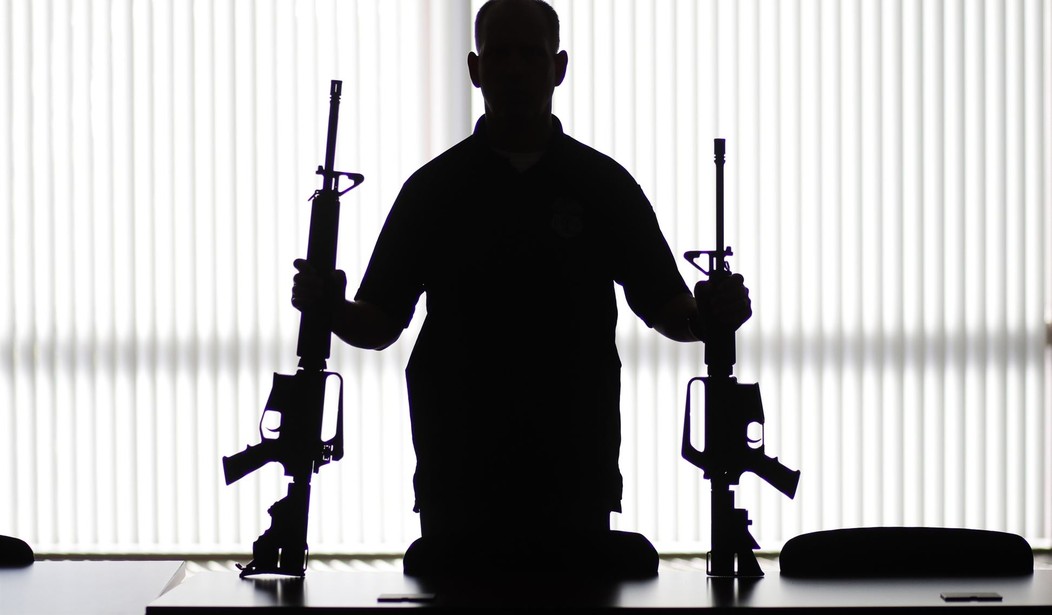A new law in California aimed at preventing individuals from building their own firearms is now the subject of a lawsuit filed in federal court, with Texas-based Defense Distributed teaming up with the Second Amendment Foundation in an attempt to overturn the law on Second Amendment grounds. The new lawsuit has First Amendment implications as well, however, since it also takes on an effort by anti-gun politicians in the state to block lawsuits like this from being filed in the first place.
The case, known as Defense Distributed v. Bonta, argues that AB 1621, which was signed into law by Gov. Gavin Newsom back in late June, infringes on the Second Amendment rights of Californians by making it illegal to“knowingly manufacture or assemble, or knowingly cause, allow, facilitate, aid, or abet the manufacture or assembling of a firearm that is not imprinted with a valid state or federal serial number or mark of identification.” Defense Distributed, which produces the GhostGunner CNC machine, is directly impacted by the law, and even selling the machine to a California resident would be considered a violation of the statute in question. SAF founder and executive vice president Alan Gottlieb says that the new law has criminalized the longstanding tradition of private gun-making and should be thrown out under the test laid out by the Supreme Court in its decision in NYSPRA v. Bruen.
The new lawsuit also challenges the legality of SB 1327; another newly enacted measure that, in Gottlieb’s opinion, “could financially penalize anyone, including an attorney or an entire law firm, if they seek declaratory or injunctive relief from any firearms-related California state statute or local ordinance, or even a rule or regulation by making them liable to pay attorney’s fees and costs of the prevailing party.”
“Simply put, anybody seeking to enjoin a California gun restriction faces the prospect of liability for the state’s attorneys’ fees if the plaintiff does not win in all respects of the case, even if their case prevails on the merits, settles a claim without a waiver or voluntarily dismisses any portion of the case for any reason.”
“Under the law,” Gottlieb added, “the government is considered the ‘prevailing party’ if a court either dismisses any part of a claim or cause of action brought by a plaintiff seeking declaratory or injunctive relief, regardless the reason for dismissal, or if the court enters a judgment in favor of the party opposing the declaratory or injunctive relief on any claim or cause of action.
This is the bill that California Democrats modeled after the controversial Texas law allowing private citizens to sue abortion providers; a decision that the lawsuit describes as “an ill-advised political ploy designed to manufacture a proxy war with the State of Texas.”
The Assembly Judiciary Committee’s analysis goes on to state, “[i]t’s a lose-lose scenario for plaintiffs who challenge the bill or a gun law; and a win-win scenario for the government. An attorney could properly represent a client in seeking to strike down an unconstitutional law, win on all but one count, and break no other statutory or professional duties, but then be held responsible (along with their client)for paying the defendant’s attorney’s fees. In fact, even if the defendant failed to seek attorney’s fees in the underlying action or the court refused to award them and found this bill to unconstitutional, this bill would allow the defendant government entity to bring an action within three years to hold the attorney responsible for those fees and costs. This language appears to be unprecedented in California law and likely would not be endorsed by this Committee but for the fact that it is included in this bill and modeled on Texas law.”








Join the conversation as a VIP Member